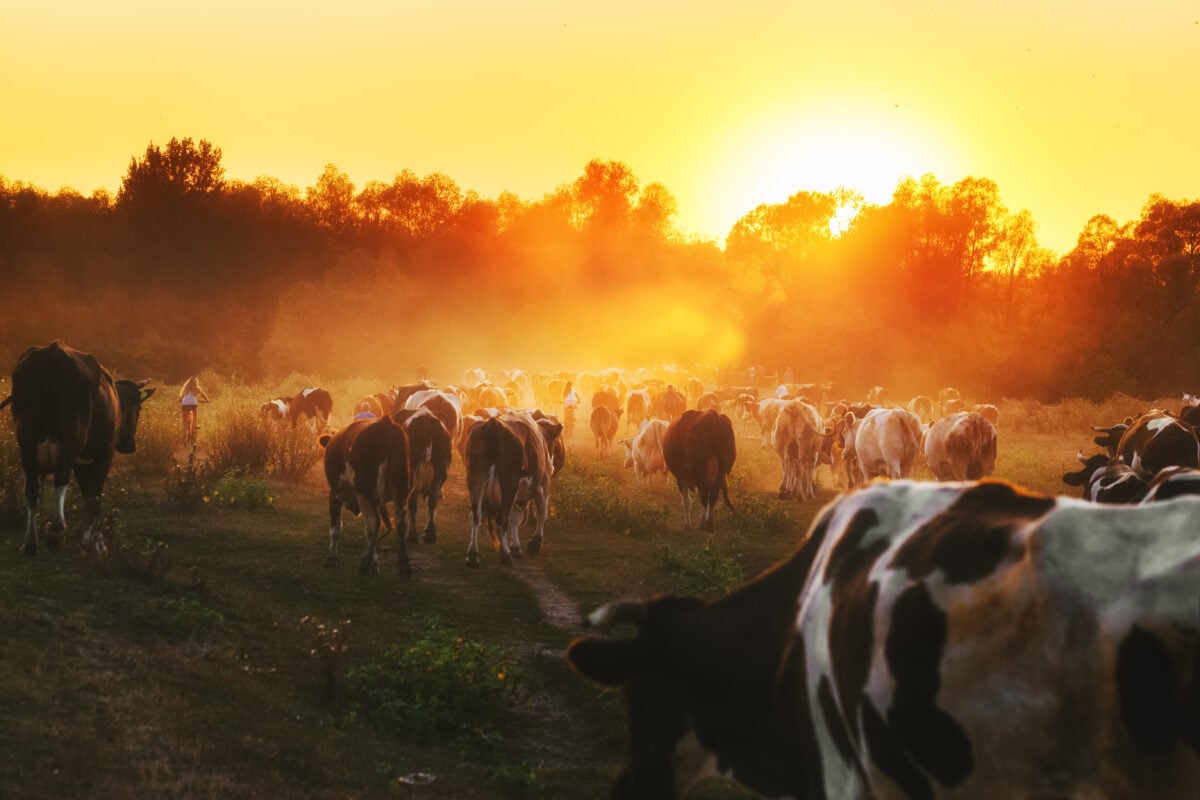A new report from The Freedom Food Alliance analyzes how publicity campaigns by the meat and dairy industry can negatively impact global food systems and the environment.
The watchdog and consumer advocacy organization says that its new report “offers a deep dive” into how the animal agriculture industry uses misinformation and disinformation to shape public opinion and influence policies, frequently “undermining” sustainability efforts. Misinformation refers to inaccurate information that is produced by error, while disinformation refers to that produced with intention to mislead.
“Animal agriculture giants are waging a disinformation war, threatening public health and the planet,” said the study’s lead author Nicholas Carter, the Director of Environmental Science at the Game Changers Institute and co-creator of Plant Based Data, in a release shared with Plant Based News (PBN).
Carter added: “Our report exposes their tactics of denial and delay and underscores the need for urgent action. We call for robust legislation, an end to greenwashing, and strict accountability for these major polluters.”
Environmentalist and Ecotricity founder Dale Vince welcomed the new report, and also compared the animal agriculture industry’s use of “denial, distraction, and deception” around the environment and health to Big Oil and Big Tobacco.
‘Scientists and journals face serious challenges’

Titled Harvesting Denial, Distractions,& Deception: Revealing Animal Agriculture’s Disinformation Strategies and Exploring Solutions, the new report’s key findings include:
A detailed analysis of online campaigns like #YesToMeat; how AI can manipulate social media narratives in the food sector; how corporate-funded science can propagate misleading information; and how all of the above impact policy-making decisions and public understanding of the meat industry.
In just one example of this, the report explains how digital astroturfing (a nickname for fake grassroots efforts typically co-ordinated by corporations or those with a political interest in undermining a movement) derailed public opinion on an Eat Lancet Commission Report. It did this by downplaying the long-known negative impact of animal agriculture on the environment.
This coordinated online backlash from pro-meat parties was also discussed and analyzed in The Lancet itself soon after. Article authors David Garcia, Victor Galaz, and Stefan Daume wrote: “Scientists and journals face serious challenges in a rapidly changing media landscape that is susceptible to the intentional dissemination of misleading content.”
The authors also note that health communication campaigns are particularly susceptible to polarization, online content pollution, and calculated disinformation online. (In fact, in early 2020, another study described how misinformation was worsening disease outbreaks.)
‘The essential shift to sustainable, plant-based diets’
Despite backlash from the animal agriculture industry, the science has backed up a reduction in meat and dairy for years, both for planetary and personal health. The animal agriculture industry is responsible for 16.5 percent of global greenhouse gas emissions. It’s also driving deforestation and harming biodiversity.
“Without decisive and collective action, we stand on precarious ground, especially as we navigate the controversies surrounding alternative proteins,” Robbie Lockie, The Freedom Food Alliance’s CEO and founder, told PBN. “Disinformation campaigns could seize on consumer fears, further muddying the waters. Yet, our report also sees a silver lining—an informed public and stronger regulatory frameworks could significantly dampen the impact of these campaigns, fostering a more transparent dialogue around our food choices and their impact on the world.”






